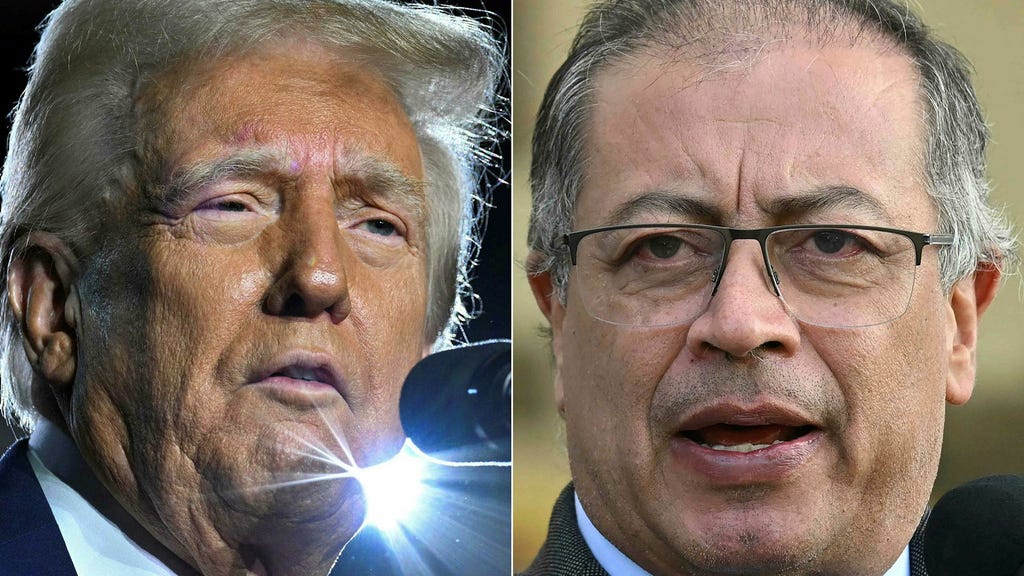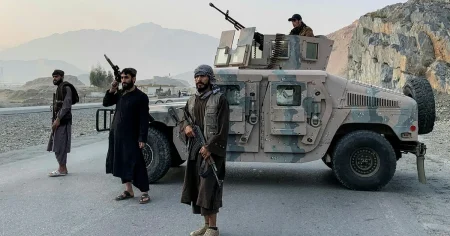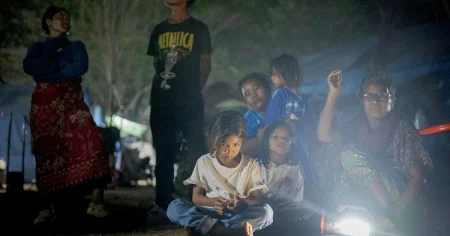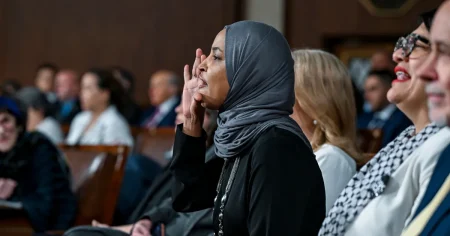The burgeoning diplomatic row between Colombia and the United States ignited with Colombian President Gustavo Petro’s public condemnation of perceived mistreatment of Colombian migrants by US authorities. Petro, taking to the social media platform X (formerly Twitter), declared his refusal to allow US planes carrying Colombian migrants to enter Colombian airspace. This strong stance, bordering on a travel ban, was accompanied by claims that he had already turned back US military aircraft with Colombian migrants on board, although the specifics of these incidents remain undisclosed. The catalyst for Petro’s pronouncements appears to be former US President Donald Trump’s recent pronouncements on tightening immigration policies, policies that Petro interpreted as criminalizing Colombian migrants. This public rebuke marks a significant escalation in tensions between the two nations, traditionally close allies in the Western Hemisphere.
The situation further deteriorated with Trump’s swift and pointed response to Petro’s pronouncements. Using his own social media platform, Truth Social, Trump accused Petro of jeopardizing US national security and endangering the public by blocking the flights. He threatened retaliatory measures against Colombia, including trade tariffs and travel bans for Colombian government officials. This exchange exposes the fragility of the current US-Colombian relationship and highlights the potential for further conflict over immigration policy. Trump’s aggressive rhetoric and threat of economic sanctions signal a willingness to exert pressure on Colombia to reverse its stance, setting the stage for a potential diplomatic standoff.
The timing of this diplomatic spat coincides with similar expressions of discontent from Brazil regarding the treatment of migrants by the US. The Brazilian government criticized the US for allegedly handcuffing a group of migrants who were subsequently transported to Brazil. This action was deemed a ”flagrant disregard” for fundamental human rights by Brazilian officials. The converging criticisms from both Colombia and Brazil suggest a growing regional concern over US immigration practices, particularly the treatment of migrants during transit and deportation. This shared concern could potentially lead to a united front against US policies, adding another layer of complexity to the already tense situation.
Petro’s decision to bar US planes carrying Colombian migrants sends a powerful message of defiance against what he perceives as unjust treatment of his citizens. His actions, though dramatic, reflect a growing frustration with US immigration policies, particularly among Latin American nations facing significant emigration flows. While the immediate impact of his decision on migration flows remains unclear, the political ramifications are significant. The move challenges the traditional power dynamic between the US and Colombia, signaling a shift towards a more assertive stance by the Colombian government in defending its citizens’ rights abroad.
Trump’s response, characterized by threats of economic sanctions and travel bans, further escalates the tension. His rhetoric reinforces his hardline stance on immigration and his willingness to use economic pressure as a diplomatic tool. This approach could exacerbate the already strained relationship between the two countries and potentially trigger a trade war with detrimental economic consequences for both sides. The potential for a trade war underscores the high stakes of this diplomatic dispute and the risk of escalating tensions beyond immigration policy.
The confluence of criticism from both Colombia and Brazil suggests a broader regional discontent with US immigration practices. This shared concern could potentially lead to greater collaboration between Latin American countries in addressing migration issues and challenging US policies. The emergence of a united front could exert significant pressure on the US to reconsider its approach to migration and border security, potentially reshaping the dynamics of migration management in the Americas. The unfolding diplomatic row holds significant implications for the future of US-Latin American relations and the treatment of migrants in the region.














